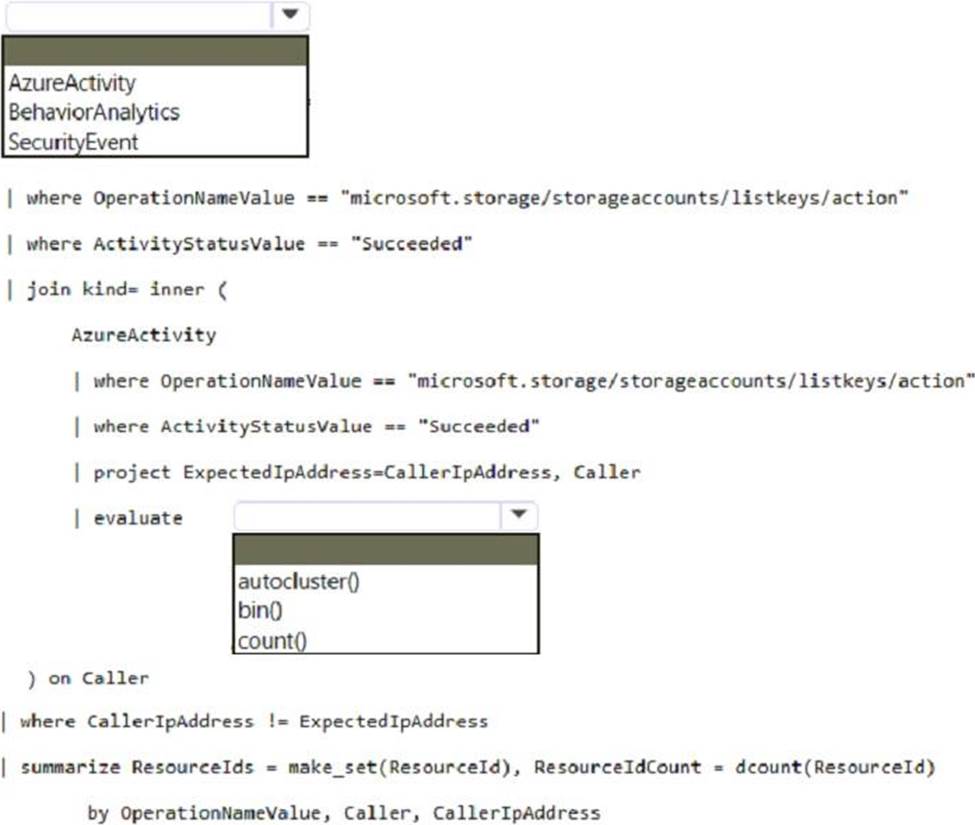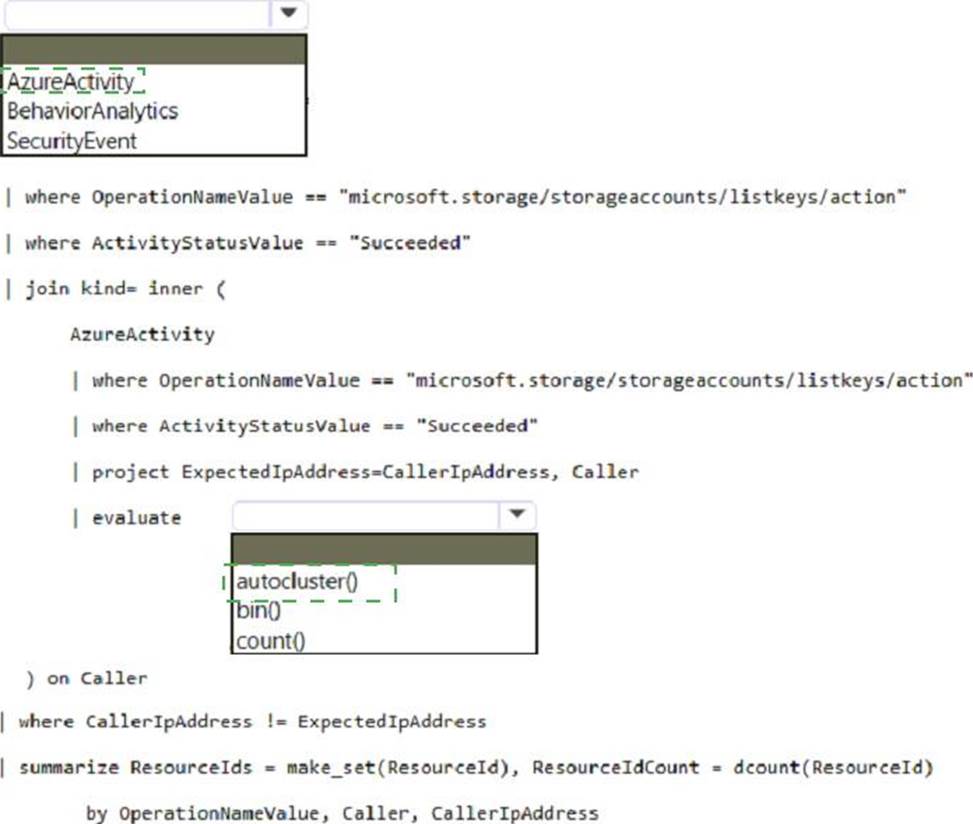How should you complete the query?
HOTSPOT
You have a Microsoft Sentinel workspace named sws1.
You need to create a hunting query to identify users that list storage keys of multiple Azure Storage accounts. The solution must exclude users that list storage keys for a single storage account.
How should you complete the query? To answer, select the appropriate options in the answer area. NOTE: Each correct selection is worth one point.

Answer: 
Explanation:
Box 1: AzureActivity
The AzureActivity table includes data from many services, including Microsoft Sentinel.
To filter in only data from Microsoft Sentinel, start your query with the following code:
Box 2: autocluster()
Example: description: |
‘Listing of storage keys is an interesting operation in Azure which might expose additional secrets and PII to callers as well as granting access to VMs. While there are many benign operations of this type, it would be interesting to see if the account performing this activity or the source IP address from which it is being done is anomalous.
The query below generates known clusters of ip address per caller, notice that users which only had single operations do not appear in this list as we cannot learn from it their normal activity (only based on a single event). The activities for listing storage account keys is correlated with this learned clusters of expected activities and activity which is not expected is returned.’
AzureActivity
| where OperationNameValue =~ "microsoft.storage/storageaccounts/listkeys/action"
| where ActivityStatusValue == "Succeeded"
| join kind= inner (
AzureActivity
| where OperationNameValue =~ "microsoft.storage/storageaccounts/listkeys/action"
| where ActivityStatusValue == "Succeeded"
| project ExpectedIpAddress=CallerIpAddress, Caller
| evaluate autocluster()
) on Caller
| where CallerIpAddress != ExpectedIpAddress
| summarize StartTime = min(TimeGenerated), EndTime = max(TimeGenerated), ResourceIds = make_set(ResourceId), ResourceIdCount = dcount(ResourceId) by OperationNameValue, Caller, CallerIpAddress
| extend timestamp = StartTime, AccountCustomEntity = Caller, IPCustomEntity = CallerIpAddress
Latest SC-200 Dumps Valid Version with 75 Q&As
Latest And Valid Q&A | Instant Download | Once Fail, Full Refund

